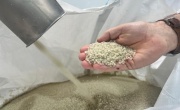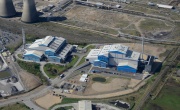CIWM report raises fuel export concerns

The Chartered Institute of Wastes Management (CIWM) has published a new report voicing concerns over the current and future state of the refuse-derived fuel (RDF) and solid recovered fuel (SRF) export market.
Partly funded by Zero Waste Scotland and the Environmental Protection Agency, Ireland, the ‘Research into SRF and RDF Exports to Other EU Countries’ report was launched to ‘develop an understanding’ of the current market and future trends affecting the UK and Ireland.
The report seeks to determine current export volumes and destinations, industry practices and regulatory approaches, as well as issues that must be addressed in the future.
RDF is prepared by basic treatment to remove recyclates from waste streams, after which it is typically sent to energy-from-waste (EfW) facilities. SRF undergoes a higher level of treatment before being sent to cement kilns and power stations ‘as an alternative to fossil fuels’.
Report findings
CIWM argues that the industry must consider whether demand from the European Union (EU) for British and Irish RDF and SRF exports is likely to continue at its current level. It cites the fact that there are a number of nations that have recently joined the EU and must rapidly decrease their landfill usage in order to meet EU targets. If this results in them producing greater amounts of waste-derived fuels domestically, demand for British and Irish RDF and SRF may fall.
The report also raises concerns about the quality of RDF exports. Most facilities that receive RDF, it contends, require no quality assurances, and improved regulation is needed to prevent ‘unsorted or inadequately sorted waste’ being exported as RDF. If the current ‘regulatory grey area’ is not addressed, it could provide a loophole for illegal operators and encourage lax sorting standards, it continues.
CIWM also raises concerns that, while minimally sorted RDF is cost effective and within the letter of the law, ‘it does not dovetail with the desired direction of travel towards greater resource efficiency and security’. This may adversely affect the development of new domestic recovery and recycling infrastructure in that it provides a low cost short-term solution at the expense of a comprehensive long-term alternative, the report maintains.
Furthermore, the report describes CIWM’s unease at the UK and Ireland’s current ‘reliance on exports and continued failure to capitalise domestically on the embedded energy in residual waste’ in light of rising energy costs and the UK’s precipitous energy situation.
According to a CIWM statement: ‘The important caveat here is that to achieve the maximum environmental and carbon benefits, capitalising domestically on this energy resource will require new energy recovery infrastructure in the UK and Ireland to achieve the same efficiency standards in design and operation as the high performing plants in Northern Europe.’
“Loose approach” to regulation must end
Commenting on the report, CIWM Chief Executive Steve Lee said: “In the short term, CIWM believes that a more rigorous and consistent enforcement framework needs to be put in place, and further work done to assess the viability of developing a classification system or minimum pre-treatment standard for RDF.
“In addition to ensuring that illegal activities are curbed, we believe this is an essential measure to ensure that valuable material resources are not being lost to the domestic reprocessing industry and the UK/Irish economy as a whole.
“In the longer term, while accepting that legitimate market forces are driving this material abroad, CIWM believes that we need to better understand and quantify the extent to which this trade could compromise investment in domestic infrastructure and the UK and Ireland’s ability to fulfil their obligations with regard to moving waste up the hierarchy and moving towards a more resource efficient and circular economy.
Jacob Hayler, Economist at the Environmental Services Association (ESA), also commented on the report, saying: “One area where immediate action is needed is tougher regulation on the storage of RDF – the loose approach applied to date has encouraged rogue operators to enter the market with poorly managed sites often causing problems for local communities.
“By improving storage regulation, these rouge traders will be stopped and the benefits of tighter regulation will be felt across the industry and in local communities.”
Read the CIWM report in full.




